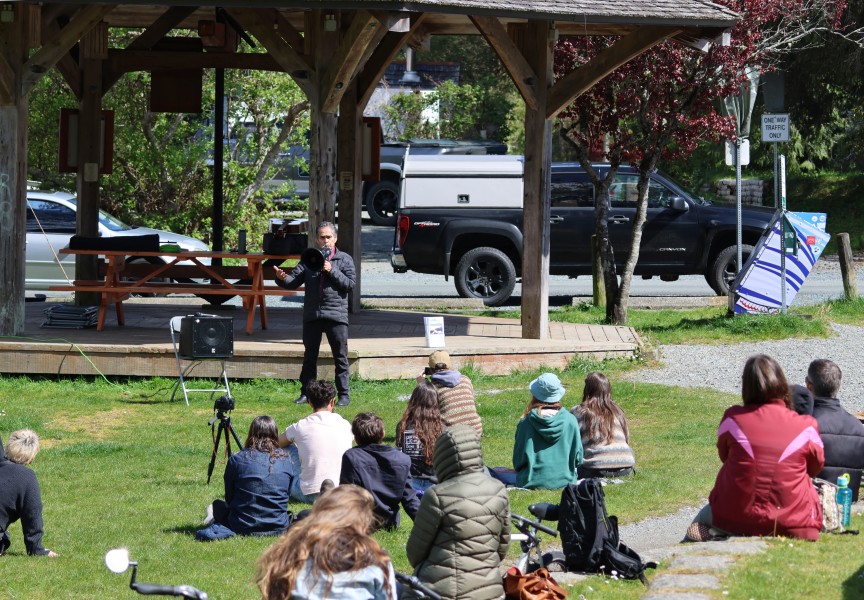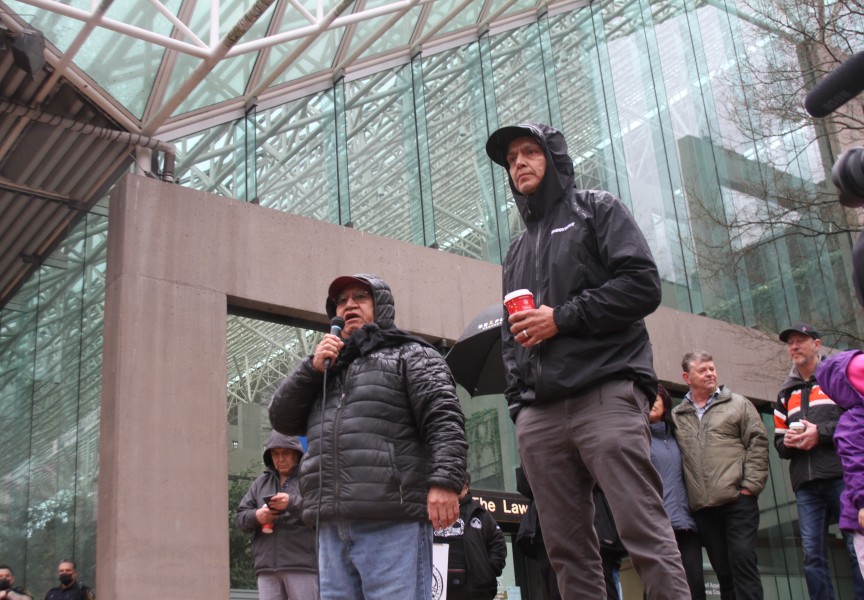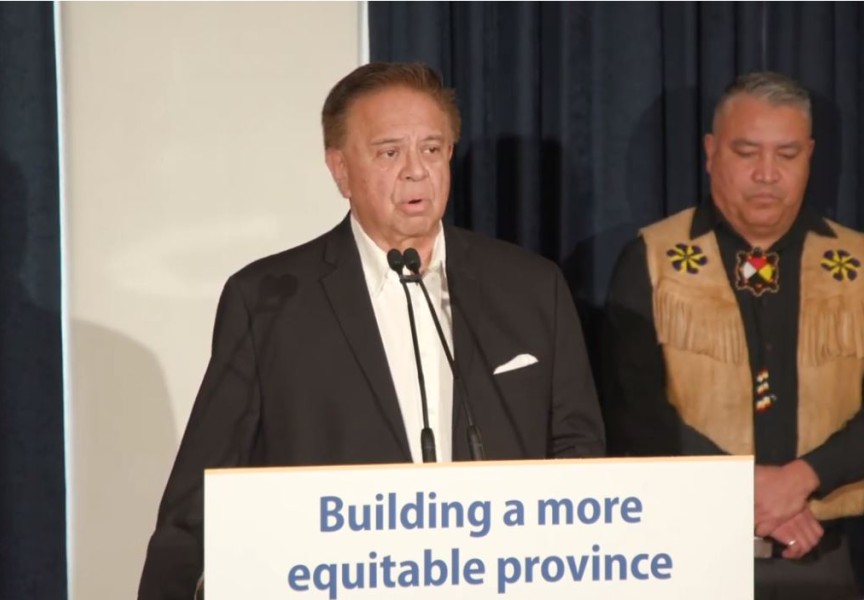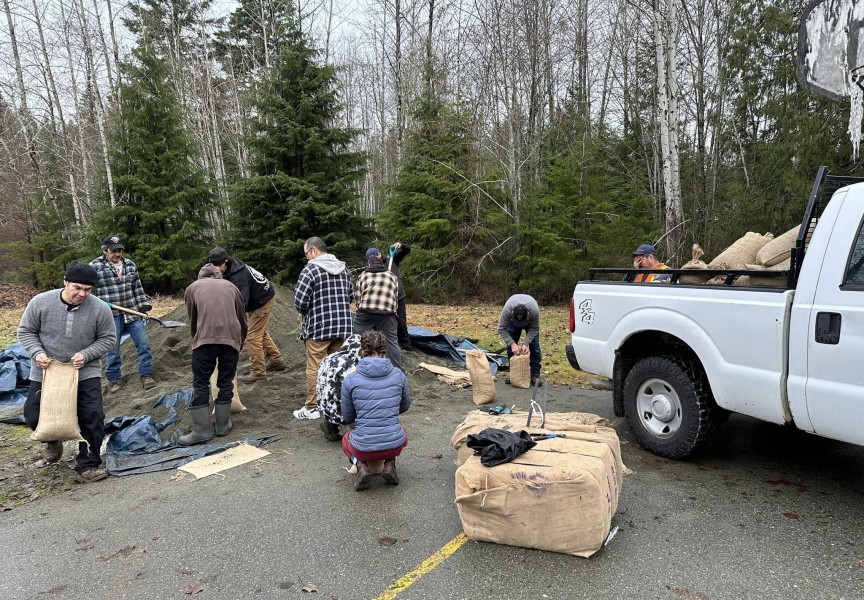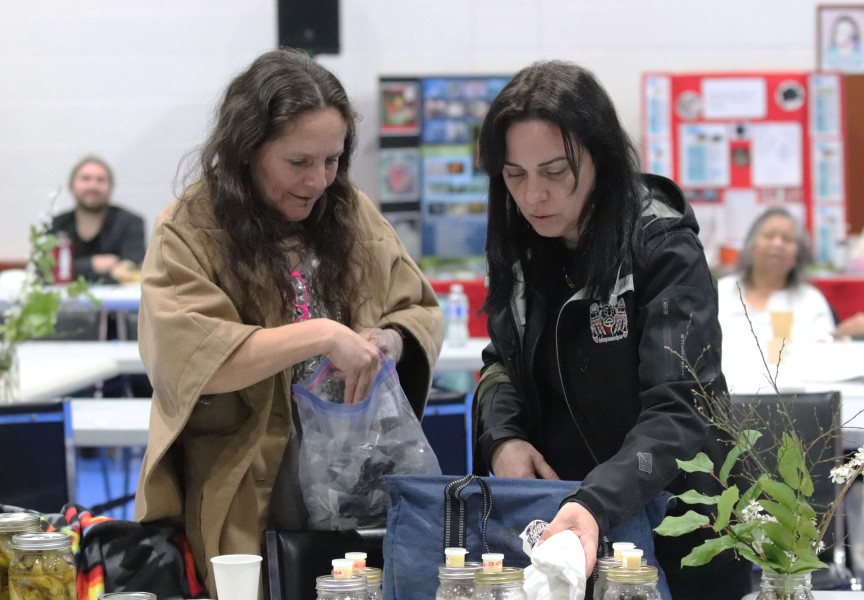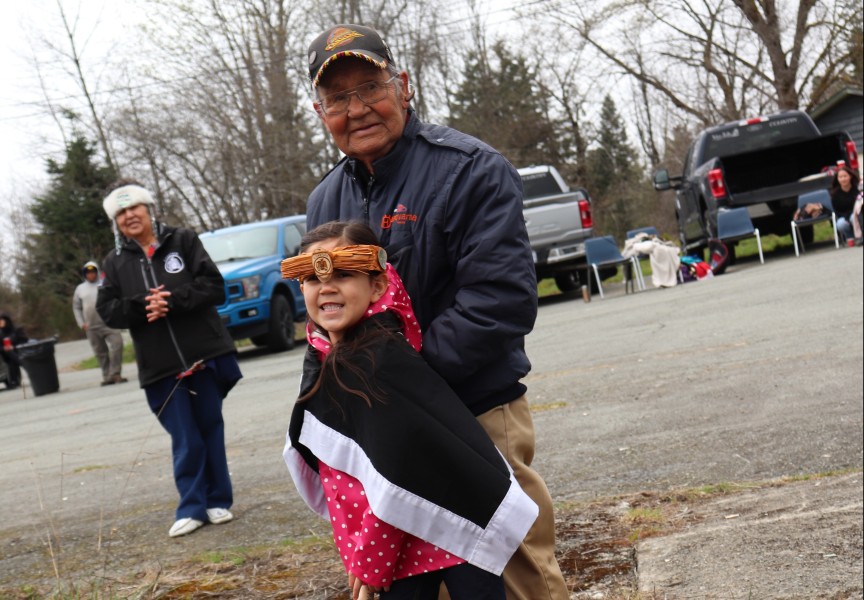Students from the University of British Columbia are surveying members of Ahousaht, Hesquiaht and Tla-o-qui-aht in an effort to learn more about their values when it comes to economic development in their traditional territories.
Many Nuu-chah-nulth nations wish to diversify their economies and input from membership is important to leadership. There may be economic value in timber, for example, but first nations also place value in cultural, spiritual and non-timber resources of the forest. Leaders must take into consideration all of these values when attempting to balance the economic aspirations of the people.
Recently, a small group of UBC staff and students invited Ahousaht members to the Port Alberni Friendship Center to survey them.
“We are looking at ways that UBC and Ahousaht can work together in a way that is mutually beneficial, said Dr. William Nikolakis, who is working on the project with Dr. Harry Nelson. They are looking at the feasibility of a concept called Payment for Ecosystem Services (PES) for B.C.’s first nations.
PES, an option to industrial development, is an umbrella term for a variety of different projects, the goal of which is to conserve the environment and get paid for it.
PES can include ways for Indigenous people to be supported to actively manage their land base. Evidence in scientific journals shows that PES programs have led to improved health outcomes, income, jobs and ecological benefits for the people involved.
In Australia, for example, there is a PES called the West Arnhem Land Fire Abatement (WALFA) program or strategy.
The indigenous people use an age-old technique to prevent catastrophic forest fires. They set controlled fires in the wet season to burn off underbrush and other fuels.
The forestry companies, whose interest is having live trees to harvest, pay the locals $3 million each year for their services.
Payments-for-Ecosystem-Services (PES) projects are being developed worldwide to address environmental and economic issues simultaneously.
There is still much work to be done to expand their use in British Columbia, but globally these programs are increasing significantly.
“The potential for PES for Clayoquot Sound, we don’t think, is being explored enough,” said Nikolakis.
In August 2013, UBC students went to Ahousaht and surveyed 32 members. On Jan. 29 more Ahousaht members were surveyed at the Port Alberni Friendship Center.
Hesquiaht and Tla-o-qui-aht members have also been invited to take part in the survey.
“It’s taken us two years to get to this stage,” Nikolakis said.
The survey is being delivered by students of UBC’s forestry department. It is designed to help the forestry department better understand people’s preferences and how they make trade-offs when making decisions.
Over the next few weeks the completed surveys will be analyzed by an emerging world-leading expert in ecological economies, Sonia Akter.
Akter’s report should be ready for the first nations by late March.
There will be a large, open workshop in October to share the results with Clayoquot Sound first nations and to allow more people to complete a survey.
One of the goals of the October workshop will be to examine the results of the survey and to look at the next steps.

